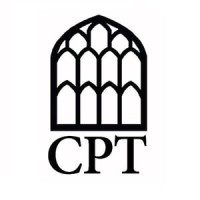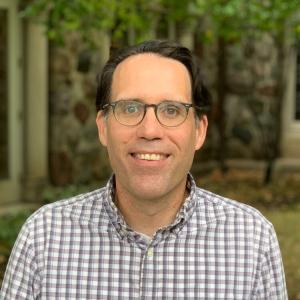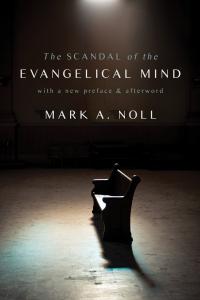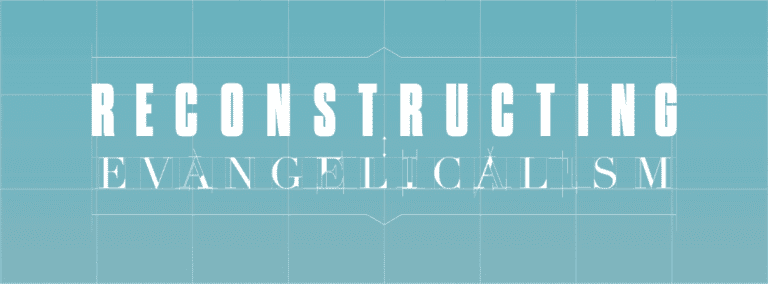Last week the Center for Pastor Theologians (CPT) announced that its 2022 conference would be on the theme of “Reconstructing Evangelicalism.” Knowing that the topic — and a speaker list that includes our own Kristin Kobes Du Mez and fellow historian Mark Noll — would likely be of interest to many of our readers, I asked CPT executive director Joel Lawrence (PhD, Cambridge) to answer a few questions for us.
Joel, I think we need to start with terminology. First, pastor theologian: why is there a center dedicated to helping the former to act as the latter? Where did the CPT come from, and what excited you about its mission and vision?
 The mission of the CPT is “equipping pastors to be theologians for today’s complex world.” At the heart of this mission is the recognition that, for most of church history, her primary theologians were pastors, servants who were socially located in churches, shepherding God’s people, and doing theology in and for the church. These pastor theologians had a clear vocational identity.
The mission of the CPT is “equipping pastors to be theologians for today’s complex world.” At the heart of this mission is the recognition that, for most of church history, her primary theologians were pastors, servants who were socially located in churches, shepherding God’s people, and doing theology in and for the church. These pastor theologians had a clear vocational identity.
However, the split between church and academy, a relatively recent phenomenon, has contributed to an identity crisis for pastors today, who, being no longer rooted in the vocation of theological shepherd of the church, have become service providers with no clear sense of core identity. This has led pastors to become, in the words of Stanley Hauerwas, “a quivering mass of availability.” What is the pastor? CEO? COO? Cruise ship director, making sure everyone is having a good time and knows where the next activity is? Orator? Activist? Therapist? Without a centering vocational identity, the pastor becomes the projection of the church’s wishes, leading to burnout and disillusionment for pastors, and theological weakness and vulnerability for the church.
The CPT was founded out of a deep concern to reclaim the church as the primary location of theological reflection and pastors as those called to shepherd the church in that theological work. The academy is important, and has a role to play, but the church must be seen as the primary place where theology happens. Theology is the work of the church in reflecting on the Gospel in our worship and action in response to the gracious presence of God; because of this, pastors have a unique role in shepherding this life as those on the frontlines of the theological task, and so must understand themselves to be pastor theologians, those who humbly shepherd the church in her life of response to God’s love and grace. So, by pastor theologian, we don’t mean “bookish” pastors who can read Aquinas in the Latin. We mean pastors whose core identity is deeply rooted in their calling to shepherd the church toward theological maturity in our life with God in Christ.
I’m excited about the mission of the CPT because I am convinced that the renewal of the church will come through the renewal of the pastorate. Much of what we are facing today with the sickness of the church can, we believe, be traced to the crisis of pastoral identity, and the weakening of the pastoral vocation as theologian. We are committed to the work of forming pastors who will transform the church, of equipping pastors to faithfully shepherd the church through the challenges of our day.
Next term: evangelicalism, which is the theme of the 2022 CPT conference. Debating the definition of “the e-word” has been a recurring theme at this blog… what does evangelicalism mean to you?
Yes, this is one of those evergreen debates. For me, the not-very-sexy answer is that evangelicalism is committed to the evangel, to proclaiming and living out the good news of God’s gracious reign through Jesus Christ and by His Spirit, calling humanity to live under that reign and no other.
Once we have centered ourselves on the Gospel, we are then describing the theological vision of what it means to live under the gracious reign of God. I think that the Bebbington quadrilateral does a nice job of laying out the core commitments of evangelicalism, so let me reflect on these while offering my own gloss.
First, to be evangelical means that we have committed ourselves to take up the cross and follow Jesus. In the terms of the Bebbington quadrilateral, this is “conversion” and “crucicentrism.” “Conversion” is the personal turn to Jesus, but the danger of that word is that it leaves us with the improper notion that coming to Christ is an event rather than a calling. When Jesus calls us to himself, he absolutely calls us to conversion, but this conversion is the ongoing call to take up our cross and daily surrendering ourselves to Christ’s Lordship. For conversion to work theologically, it must be understood in connection to crucicentrism, the daily discipleship of taking up our cross because Christ’s cross is at the heart of our faith.
Second, it means we call others to take up the cross and follow Christ. This is Bebbington’s “activism” emphasis. This is the evangelistic work of the church, the missionary task of proclaiming Christ and calling others to join us in following him, and also to serve the world through acts of neighbor love that are essential to our life as those living under the reign of God.
Third, it means a commitment to the authority of the Word, Bebbington’s “Biblicism.” But this must be understood in the theological context of God’s speech via the Word and Spirit, an emphasis that I fear too much of evangelical theology misses, which can then turn Word and Spirit into a cold, rationalist, modernist Bibliology. Yes, as evangelicals we believe that the Bible is the Word of God, but to understand its authority, we must position it in the context of God’s missional self-giving through the Spirit.

There is another critical emphasis that is missing from the Bebbington quadrilateral, but which I view as essential to the future of evangelicalism: the Church. One of the reasons that evangelicalism has so easily been captured by sociological/political movements is that we aren’t grounded in a theologically rich vision of the church. Lacking this, we lack a true understanding of our purpose in the world, and so give ourselves to many other purposes that deflect us from our mission. I think this is why so many who leave the evangelical church do so by moving into ecclesially rich traditions; as I look to the future of evangelicalism, I believe that we are going to have to develop an ecclesiology that emerges from our prior evangelical commitments and fills out the evangelical theological vision (and to do that we are going to need pastor theologians to shepherd the church in her identity as the church).
Finally, the conference announcement starts with the word deconstruction, while its title aspires to the reconstruction of evangelicalism. What do you mean by deconstruction, and how is reconstruction related to — or distinct from — it?
In one sense, deconstruction is the continual, ongoing work of the church, which, done well, is consistent with the call of the church to semper reformanda, always be reforming. As the church finds that its structures are creaking and walls are cracking, that its life in the world is inconsistent with its Gospel proclamation, it is critical to do the important work of understanding the structural flaws that are leading the house to be unstable. So deconstruction, properly understood, is about being honest about the cracks and dangers, and doing the work of addressing those flaws.
I think many today have come to the conclusion that the whole evangelical house needs to be abandoned. I am not convinced that that’s the right conclusion, but certainly understand why many feel that way. My personal concern with the deconstruction movement is that it seems to have very little positive content, by which I mean it is determined by the thing it is rejecting, and too easily becomes a reactionary movement dominated by the thing it thinks it is dismissing. As we at the CPT have processed through the deconstruction movement, we have not taken the stance that many evangelicals have taken, to denounce deconstruction as being unfaithful. But we also don’t believe that deconstruction is the terminus. We think it’s critical to listen to the voices of deconstruction, but to do so with a view to the reconstructing work of semper reformanda.
One of the responses that we have gotten to the conference announcement is that it’s too early to be talking about reconstructing, which comes from the concern that our purpose is to short-circuit the work of deconstruction. To be clear: it isn’t our purpose to say, “well, o.k., we’ve had enough of the deconstructing work, time to put that to an end.” Instead, our heart is to encourage the vital and necessary reforming work of the church, but to indicate that deconstructing is not an end; it must go somewhere. Yes, we need to be sure we are doing the proper analysis of the weakness of the structure, but we must do that always with an eye toward repair and rebuilding. At the CPT, we want to be part of the conversation about where it should go, even as we recognize that there is work to do before that is clear. This conference is a step toward the future, not a proclamation that the work is done.
When I retweeted the conference announcement, the first response was skeptical: “Why reconstruct evangelicalism”? How would you answer that? (Even in the program announcement, there’s an acknowledgement that it might not be possible to succeed in this task… and the Presbyterian pastor-theologian who responded on Twitter might ask if it’s even worth the effort.)
As you can imagine, as with anything you say publicly these days, we’ve had a variety of responses to the conference theme from all sides. Some have said exactly what your respondent said; others have said that there is nothing in evangelicalism that needs to be reconstructed because nothing is wrong.
As an organization, we come from the position that the evangelical movement is broader than the last 40 years of evangelical expression in America, and we believe it is important to reflect on the purpose and promise of the movement in order to see it in that broader context, and from there to ask about what in the evangelical ethos is critical to carry forward. So, to answer your skeptic’s question: we believe that the theological commitments of evangelicalism are vital to the life of the church and her mission in the world, but we also believe that these must be, as we say in the conference description, “disentangled from the sinful racial, sexual, social, and political structures that have been exposed in recent years.”
The vision for our conference is to create a place where we can bring people from across the broad evangelical spectrum to engage in heartfelt and, we pray, fruitful conversation. In our cultural moment, the opportunity to truly speak with others with whom you disagree, to truly engage meaningfully in listening to viewpoints that challenge ours, are few and far between. At the CPT, we feel one of the roles we are called to play in the evangelical world is to resist the fundamentalism on both sides of the theological spectrum, to host conversations that we cannot find on social media nor at conferences that are dedicated to one “side” or another, and so bracket out certain conversations from the beginning. The speakers we invite are intended to span the spectrum of the broadly evangelical tradition, coming together to challenge the church and encourage pastors in our theological task in the world today.
 Several of your scheduled speakers should be familiar to our readers, including Kristin Du Mez (one of our contributors) and her fellow historian, Mark Noll. Why was it important to include a retrospective discussion of Noll’s Scandal of the Intellectual Mind as part of this conference? What role do you think that Christian colleges and seminaries — or Christian intellectuals beyond such campuses — can play in the reconstruction of evangelicalism?
Several of your scheduled speakers should be familiar to our readers, including Kristin Du Mez (one of our contributors) and her fellow historian, Mark Noll. Why was it important to include a retrospective discussion of Noll’s Scandal of the Intellectual Mind as part of this conference? What role do you think that Christian colleges and seminaries — or Christian intellectuals beyond such campuses — can play in the reconstruction of evangelicalism?
First, history: I know I don’t have to convince you, Chris, and your readers, that history is important. 21st century evangelicalism has taken on some damaging socio-cultural forms, and essential to any project that aspires to “reconstruct evangelicalism” is to understand the foundation and structure of the movement over time. Perspective is vital; evangelicalism goes back in history well beyond Jerry Falwell. Unfortunately, the shape of current evangelicalism is overly-determined by our near history. But the roots are deeper, and they tap into streams of water that we have forgotten through our inattention to history. To do this, we wanted to be sure that history was well-represented at the conference. In addition to Du Mez and Noll, we also have invited Gavin Ortlund to be a plenary speaker and Doug Sweeney as a breakout speaker. Gavin is a Fellow of the CPT, and has recently written a book called Theological Retrieval for Evangelicals: Why We Need our Past to Have a Future, in which he looks not merely at evangelical history but at the need for evangelicals to better connect to the Great Tradition of the church. Doug is on the CPT board and is a renowned Jonathan Edwards scholar who brings the perspective of early American evangelicalism to our conversations.
Noll’s work, in particular, comes from a historian who has been concerned about the evangelical movement for many years. In March of 2022, Eerdmans is releasing a new edition of The Scandal of the Evangelical Mind, in which Noll offers a new foreword and afterword positioning the book in the context of the Trump years. For us, to have a historian of this stature, at this stage in his career, reflecting on our current moment from the perspective of his decades as a historian is critical to the overall purpose of the conference, and is something we are really excited about for our conference attendees.
Second, church and academy: In terms of the role that colleges, seminaries, and Christian intellectuals can play, it is critical. This conference is primarily for pastors, and many who will present at the conference are full-time pastors. But we also believe that the Christian intellectual tradition is essential to the creation of pastor theologians.
I’ve been a full-time senior pastor and a tenured faculty member at Bethel Seminary. Through my experiences in the pulpit and the classroom, through my own journey of vocational identity, I have come to believe that if the church is going to be healthy, we will need a healthy union between the academy and the church that doesn’t currently exist. In their book, The Pastor Theologian: Resurrecting an Ancient Vision, the cofounders of the CPT, Todd Wilson and Gerald Hiestand, talk about the ecclesial anemia of the academy and the academic anemia of the church resulting from the divide between church and academy. The renewal of the church will come from a much more intentional connection between church and academy, in which each understands its complementary role in building up the Body of Christ to maturity. This will require a broadening of how we understand theology, a humbling of both academics and pastors to see the value of each other, and a deeper commitment on all sides to marshal our resources in a committed task of building up the church.
Thanks to Joel Lawrence for taking the time to answer our questions! The CPT conference will be held in Chicago in late October 2022. Check the conference website for further details.














